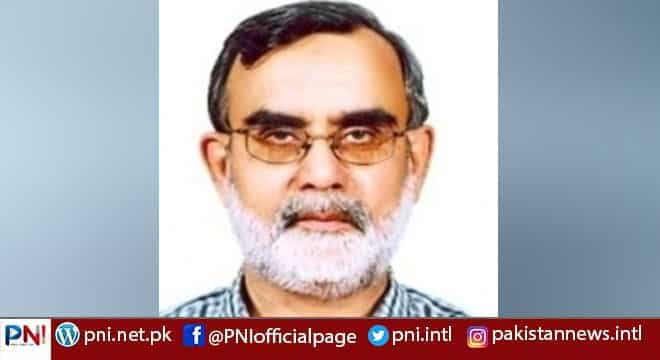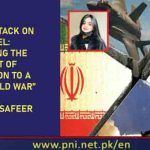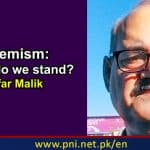We are all very concerned about changing the things happening in Pakistan. Unprecedented inflation, unemployment, and extreme income inequality bother us all. There are many recipes on offer as well and the most popular one is of a bloody revolution. The heated and hateful debate in vogue reminds me of an African saying “If you don’t know where you want to go almost every road will take you there. Talking of revolution is helpful for many other reasons also the most important being that it can spare us the pain of self reflection, self responsibility, and self-action. One reason we think that action at the level of self is inconsequential is that we have a very low image of ourselves as individuals. We think if we do something at an individual level it doesn’t have any significance. I should change the world first and then everything will fall in place. Before I respond to the fallacy of holding a low view of individual action let me share with you two stories of wise and inimitable Mullah Nasruddin and then I will tell you some stories of individual action.
It is narrated that Mullah lost a precious coin and he was searching for it in the street in front of his house. During the course of his search, he was joined by many passersby, but no one could find the coin after a long search. Suddenly someone asked, Mullah where did you drop the coin. Mullah said in the basement of my house. “Why are you searching for it here then?”, they asked. Because there is no light in the basement. The other anecdote mentions that Mullah was coming home when he saw a big crowd gathered around the corner in the street. Mullah made his way through the crowd and found a man in the middle of the crowd asking for bids for his parrot. What is so special about your parrot? Asked Mullah. It can speak. Mullah went home, fetched his turkey, and started asking for the bids. What is so special about your turkey? asked the people. It can think. The crowd dispersed. I will let you draw your conclusion from these stories about our self-image. Mullah did not have the problems that we are facing but he raised the questions that we also need to ask.
Now let me share the story of how individual actions matter more than anything else. In the United States, black people did not have the right to vote till the 1960s. They were segregated from whites in every walk of life. One day, one black woman Rosa Park refused to vacate a seat on the bus for a white male passenger. It created turbulence in the bus, but the ripples created by this one unknown woman created such an uproar that the practice of racist segregation began to crumble down. Rosa Park was not a priest, or a politician or an intellectual or a revolutionary intending to overthrow the ‘system’. She overthrew the system of racist segregation in her own life. That was the revolution that mattered the most. How come it led to such an impact? A single spark can create a prairie fire as the saying goes. Our job is to light a single match when the prairie is ready the forest will light up.
This thought of the power of individual action has been beautifully narrated by two other icons in the twentieth century. Arthur Ash, a legendary American tennis player once said, “Start where you are, use what you have, do what you can”. It gave the message that no one is powerless. Bruce Lee, another legend said, “Be like water making its way through cracks. Do not be assertive, but adjust to the object, and you shall find a way around or through it. If nothing within you stays rigid, outward things will disclose themselves. Empty your mind, be formless. Shapeless, like water. If you put water into a cup, it becomes the cup. You put water into a bottle, and it becomes the bottle. You put it in a teapot, it becomes the teapot. Now, water can flow, or it can crash. Be water, my friend.”
Our working people have the best embodiment of the vision of Arthur Ashe and Bruce Lee. Their stories are known and have been documented by very creative scholars as Jugaadh. They know the art of improvisation, the survival. They know how to work within the system and within available means. If we want to transform Pakistan, we need to learn from them. The change begins with me. We fail because we are all trying to change others.








